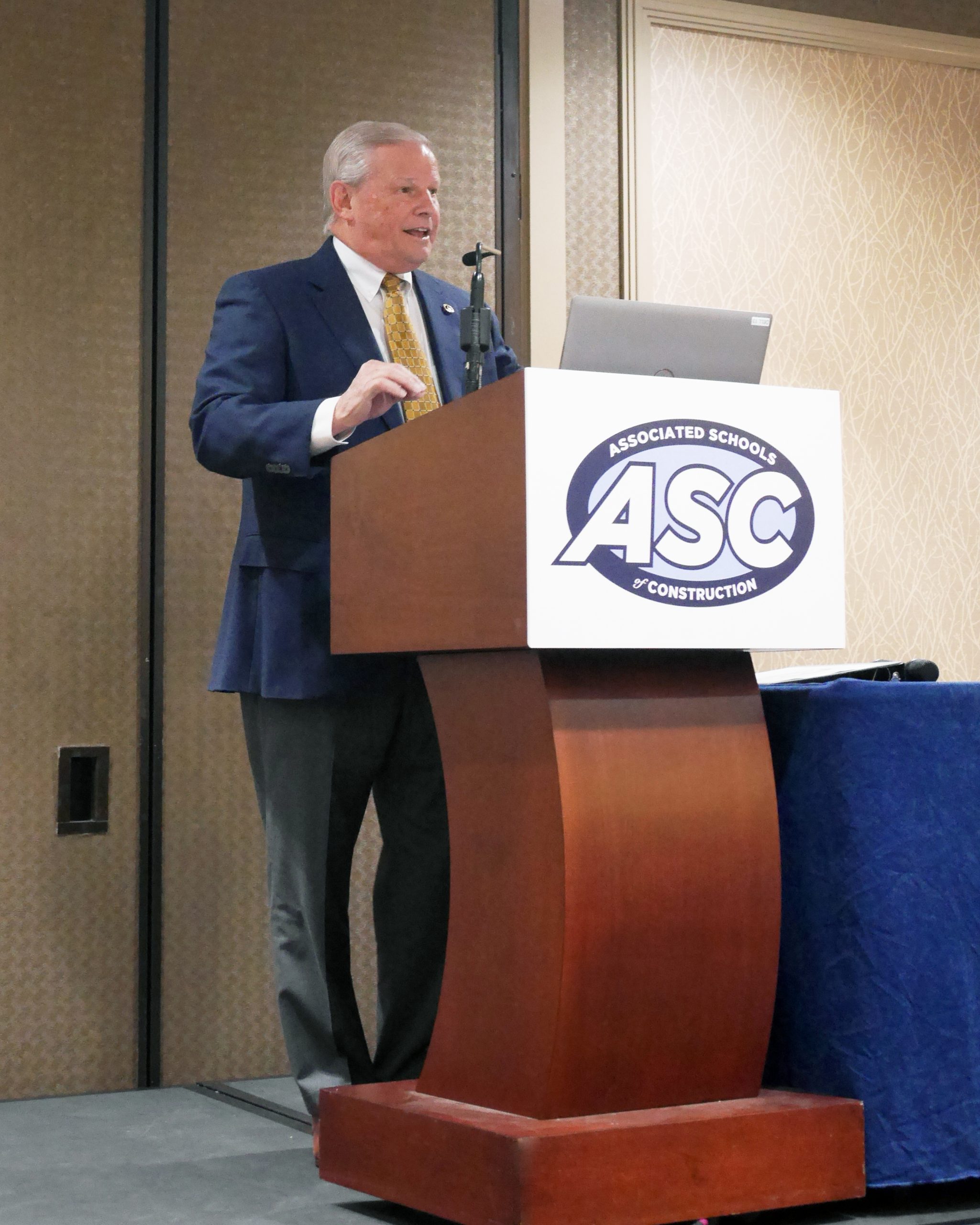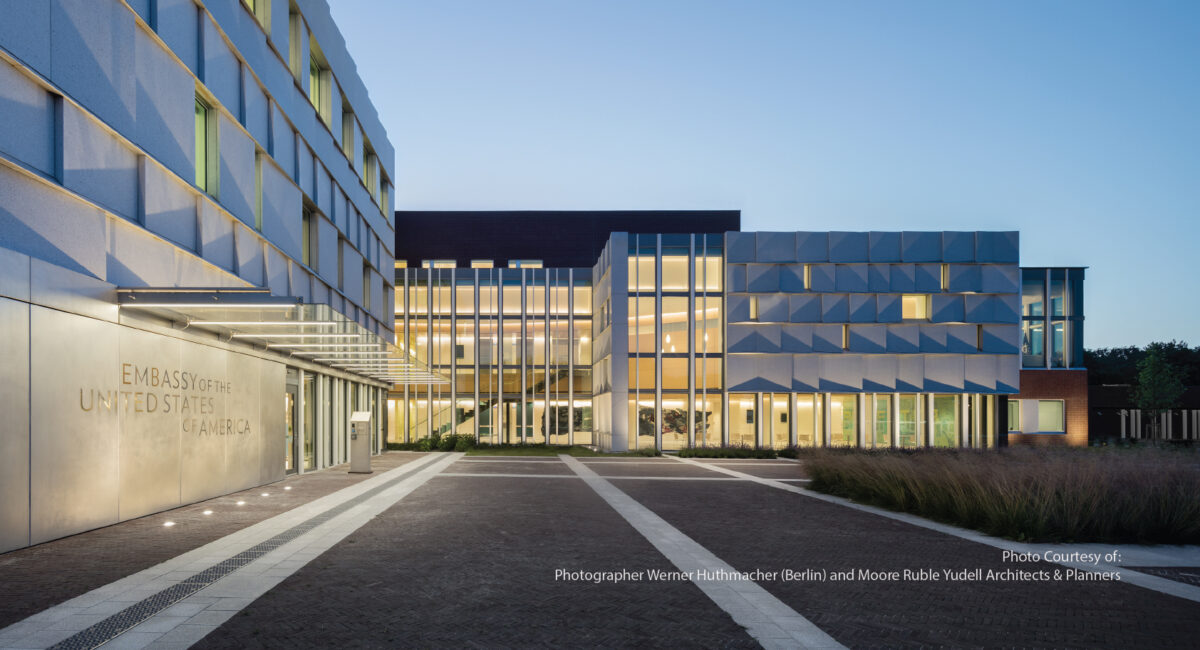Stewart Highlights Education “Extras” as BSCI Hosts ASC Conference
Caddell Construction’s Eddie Stewart urged educators and students to prepare for rapid responsibility and real-world situations during his keynote address at the recent 60th Annual Associated Schools of Construction (ASC) International Conference, hosted by Auburn’s McWhorter School of Building Science (BSCI).

A founding member of Montgomery-based Caddell Construction, Stewart has served in various roles throughout his 40-year career with the company, including President & Chief Operating Officer and Chief Executive Officer. He stepped down as CEO upon his recent retirement but remains engaged with the company as Chairman.
Stewart is also a past president of Associated General Contractors of America (AGC) (the first president of the organization ever from Alabama) and currently serves on the Board of Directors for the organization’s Education and Research Foundation, the Georgia Institute of Technology’s School of Building Construction Advisory Board and BSCI’s Construction Industry Fund Board. He was inducted into the National Academy of Construction in 2018 and the Alabama Construction Hall of Fame in 2020.
In his Auburn keynote address, Stewart based his comments both on his 45 years of hiring students from ASC-member institutions as a general contractor and his 35 years of involvement with the AGC.

“I get to interview many students for employment at Caddell as well as for AGC scholarships,” he told his audience of more than 300 educators and students. “Some are stars, and there is something special about those stars that makes them stand out. There was something they did during their educations that others did not do.”
For Caddell, that “something” was actually a number of things, including participating in student competitions, particularly design/build competitions requiring future contractors and architects to work together more closely; becoming involved in service-learning projects, aimed at getting real world, practical experience in trades while also benefitting the community; and seeking out internships, allowing students to fill meaningful roles in both field and office.
“The duties of interns have changed greatly over the years,” Stewart noted. “We used to think up things to keep them busy. But many contractors have formalized their programs for interns. They’re like five-star football recruits now. They actually perform entry-level duties and responsibilities just like new hires, which helps them better understand the positions available in a construction company.”
In addition, Stewart urged students to seek out more study abroad opportunities. He also recommended they become involved in their student chapters of industry organizations such as AGC.
“Our company does international work,” Stewart said, in expanding on the need for more study abroad experience. “We build U.S. embassies and consulates all over the world—in 43 countries so far. We build in some of the most challenging places in the world. That will make a young graduate grow up fast.

“Networking is a huge part of any industry,” he continued, making the case for involvement in student organizations. “These conventions are a great place to network. Students get exposure to other schools and programs as well as future employers.”
Finally, Stewart concluded by sharing his belief that all the educational components he advocates are more necessary for today’s students than ever before.
“The demographics of our industry are changing rapidly,” he asserted. “The older generation is retiring, both in the workforce and in management. As a result, while companies used to have 8-10 years to develop young graduates, we now put them into positions of responsibility much sooner.
“Today’s students are also different,” he continued, “even from students just a few years ago. They want responsibility and they want it now, even in some cases when we think they are not ready. If they don’t move up in their current company, they will move on.”
That’s why, Stewart concluded, it is more important than ever for ASC member institutions such as Auburn to turn out students who have broadened their classroom knowledge through participation in the activities he outlined. The result, he believes, will be good for both the education sector and industry as tomorrow’s “star” students enter the workforce.
See more in:
Industry Engagement,
Industry Recognition